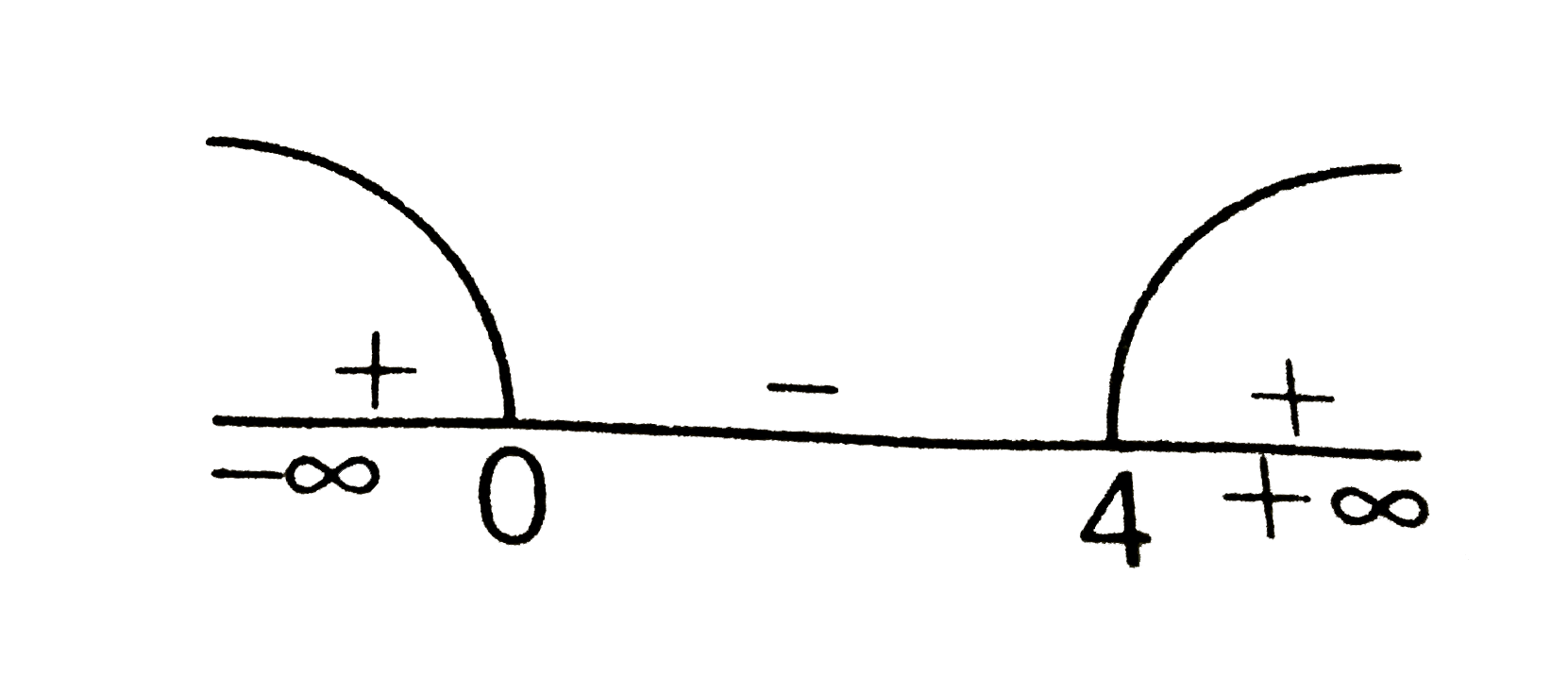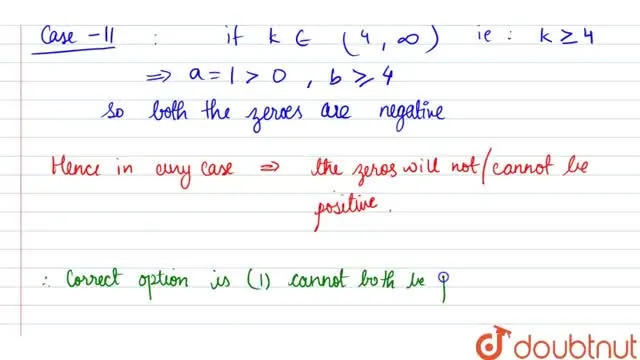The zeroes of the quadratic polynomial x2+kx+k where k≠0,
cannot both be positive
cannot both be negative
are always unequal
are always equal
The correct Answer is:A
Let p(x)=x2+kx+k,k≠0
On comparing p(x) with ax2+bx+c, we get
a=1,b=k and c=k
Now, x=−b±√b2−4ac2a [by quadratic formula]
=−k±√k2−4k2×1
=−k±√k(k−4)2,k≠0
Here, we see that
k(k−4)>0
⇒k∈(−∞,0)∪(4,∞)
Now, we know that
In quadratic polynomial ax2+bx+c
If a>0,b>0,c>0 or a<0,b<0,c<0,
then the polynomial has always all negative zeroes. and is a>0,c<0 or a<0,c>0, then the polynomial has always zeroes of opposite sign.
Case I if k∈(−∞,0) i.e., k<0
⇒a=1>0,b,c=k<0
So, the zeroes are of opposite sign.
Case II If k∈(4,∞)i.e.,k≥4
⇒a=1>0,b≥4
So, both zeroes are negative
Hence, in any case zeroes of the given quadratic polynomial cannot both be positive.

Related Playlists
Similar Questions
The zeroes of the quadratic polynomial x2+kx+k,k≠0
View SolutionIf the zeroes of the quadratic polynomial ax2+bx+c, where c≠0, are equal, then
View SolutionIf the sum of the zeroes of the quadratic polynomial 3x2−kx+6 is 3 ,then find the value of K.
View SolutionIf one of the zeroes of the quadratic polynomial (k−1)x2+kx+1 is −3then the value of k is :
(A)43
(B)−43
(C)23
(D)−23View SolutionIf α and β be the zeroes of the quadratic polynomial p(x)=2x2−kx+7 since that α2+β2−12αβ=232 , find the value of k.
View SolutionFind the zeroes of quadratic polynomial 18x2−2=0
View SolutionIf the sum of the zeros of the quadratic polynomial kx2+2x+3k is equal to the product of its zeros then k=?
View SolutionIf one zero of the quadratic polynomial kx2+3x+k is 2 then the value of k is
View SolutionIf one of the zeroes of the quadratic polynomial (k−1)x2+kx+1 is -3 ,then the value of k is
View SolutionFind the value of 'k' so that the zeros of the quadratic polynomial 3x2−kx+14 are in the ratio 7:6
View Solution


